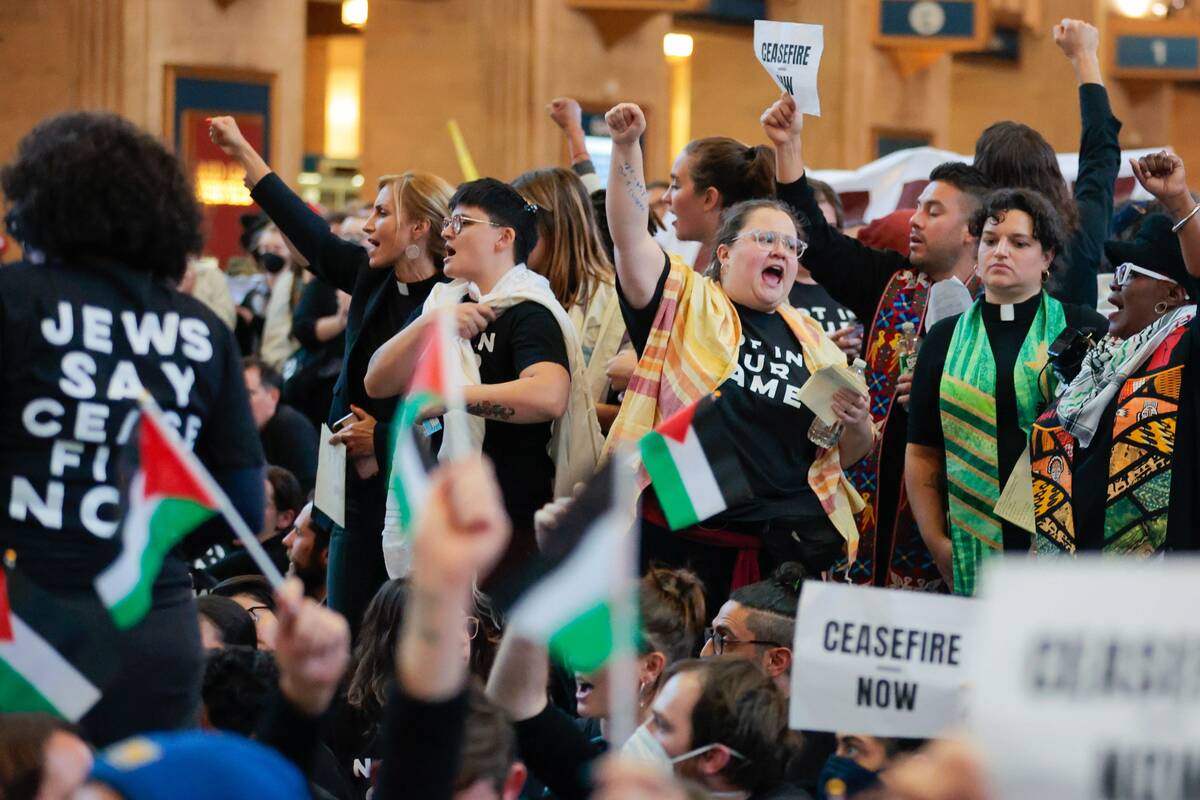In many Jewish families, generational fractures over Israel and Gaza
PHILADELPHIA — In the aftermath of the the Oct. 7 Hamas terrorist attack in southern Israel, Rabbi Lonnie Kleinman was arrested at the U.S. Capitol as she called for a cease-fire in Gaza.
Soon after her arrest was broadcast on Fox News, she received a text message from her father. He said he was deeply disappointed, and that her grandparents, who survived the Holocaust, would have been devastated if they were still alive, Kleinman said.
She and her father then stopped speaking, she said.
“He is acting from a place of wanting to protect the Jewish people and honor his parents’ legacy. And so am I,” said Kleinman, who is 32. “We’re just going about it in very different ways.”
Kleinman’s experience speaks to a growing generational rift that has been highlighted in Jewish communities across the city and country in recent weeks.
National polls have found younger Americans are far more skeptical of the Israeli government and the United States’ relationship with Israel than their older counterparts.
In some cases, differences by age were even starker than differences by party. A Wall Street Journal/Ipsos poll found that only 40 percent of respondents under 30 said the U.S. “has a responsibility to help Israel fight Hamas,” compared to more than 70 percent of people over 65.
Even before the most recent violence, younger Jewish voters across the country were more critical of Israel than older ones.
In the Philadelphia area, which has one of the largest Jewish populations in the country, this generational disconnect has taken the shape of grief, fury, and splintering conversations among loved ones who cannot see eye to eye on the crisis.
The local stakes are raised by an increasing number of Jewish-led demonstrations against Israel’s siege of Gaza.
David Mandell, 55 and a member of Rodeph Shalom synagogue, agrees with much of the criticism about Israel’s current government. But the bloodshed on Oct. 7 sparked fear and a familiar sense of dread for him — as did the ensuing, in his view lopsided, public condemnations of Israel.
“Never far from the surface, there’s this idea that a Holocaust or something similar could happen again. The Hamas attacks were a reminder of that in Israel, and the world’s response was a reminder of that globally,” Mandell said.
His two daughters, on the other hand, both under 20, are “much less forgiving of Israeli transgressions,” he said.
Elya Piazza, 30, a rabbinical student who lives in Germantown and is getting a Ph.D. in Jewish Studies, joined cease-fire protests organized by Jewish Voice for Peace at the U.S. Capitol, 30th Street Station, and the Statue of Liberty.
“Pretty much my entire adult life is devoted to learning our history and serving Jewish people,” said Piazza, who also speaks and teaches Yiddish.
After being arrested at the Capitol, Piazza messaged their family group chat.
“Ideally I would have liked my mom to be proud of the work I was doing,” Piazza said.
Their mother, Laurel Kallen, 70, messaged back, “Glad to see you standing up for your ideals” with a heart emoji, along with an article about progressive Jews feeling abandoned by the left as they mourned the victims of the Hamas terrorist attacks.
At this point, mother and child, both closely tracking the violence in the Middle East, are barely speaking to each other about it, they each said in interviews with The Philadelphia Inquirer.
Zach Malett, 27, lives in West Philly and has spent weeks trying to get his dad to call his representatives and push for a cease-fire.
“I really do fundamentally think that my Jewish upbringing made me a justice-oriented person, and I like to think that’s part of why I feel so strongly about this,” he said.
Zach’s father, Danny Malett, 57, said the two had what was supposed to be a brief workday phone conversation that ended up lasting nearly two hours.
Danny Malett described himself as being in a “sandwich” generation between his own parents, who raised him with the belief that, basically, “without Israel, there’d be no more Jews in the world,” and his children, who see Israel, at best, as a regional superpower imposing military control over a vulnerable population.
After difficult text conversations, Zach lent him two books to read on the history of the region.
“Would I read them on my own if I found them on a coffee table? I don’t know,” Malett said. “But Zach asked me to, and so I intend to — to keep the dialogue open.”

















